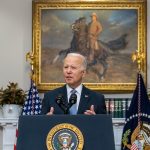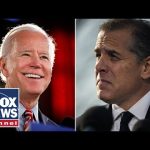The political landscape in America has been rocked by powerful speeches and heated discussions lately, especially with former President Barack Obama making headlines. Recently, he took to the stage in Chicago, sounding off on what he described as the “weaponization of government” and the growing division in America. His comments might have seemed thought-provoking on the surface, but many see it as a classic case of projection—a term that involves accusing others of one’s faults. And boy did the analysis of his words spark lively conversation.
Observers noted that Obama seems to be in a tough spot. His speech touched on the idea that America is politically split down the middle, which leads to gridlock and a cycle of increased polarization. However, while he critiqued how one side might aim to secure power permanently—using tactics like politicizing the armed forces and the legal system—many felt he was describing his own administration’s past strategies. This had some commentators shaking their heads, pointing out the irony in Obama’s delivery, as he has been seen as a polarizing figure himself.
In the eyes of critics, Obama is exhibiting what they term “desperation.” His speeches these days are a stark contrast to the charismatic leader who rose to fame in 2004. Instead of conveying hope and unity, he now appears bitter and frustrated, likely stemming from a reality that his party hasn’t fared well in recent elections. It seems as if he expected his tenure to cement a permanent Democratic stronghold, but the tides of public opinion are shifting away from that dream.
Amidst the critical reflections on Obama, the conversation turned toward the current political environment, notably bringing Donald Trump back into the spotlight. As discussions about illegal immigration continue, it was highlighted that even prominent Democrats like New York City’s Mayor Eric Adams are beginning to reconsider their positions. Once a supporter of sanctuary cities, Adams has felt the weight of rising crime and dissatisfaction among constituents, nudging him to acknowledge that maybe Trump and the Republicans hold viable solutions for the city’s troubles.
Remarkably, it appears that the Mayor is reading the room—or more accurately, the streets—realizing that the voting public is less inclined to support radical agendas. In a dramatic pivot, he has hinted that he might even consider rejoining the Republican Party. This shift proves that politicians are often swayed by the winds of popular opinion, especially when their constituents start sounding off about pressing issues like public safety and immigration chaos.
As these political chess pieces move across the board, it becomes clear that both parties are grappling with their narratives and strategies in a rapidly evolving landscape. While Obama’s remarks may have provided a moment of reflection, they also reveal the intricacies of contemporary politics, where allies can quickly become adversaries, and the truth of one’s actions tends to echo loudly. As the drama unfolds, the public watches closely, ready to interpret the next moves in this unpredictable game of political power.




